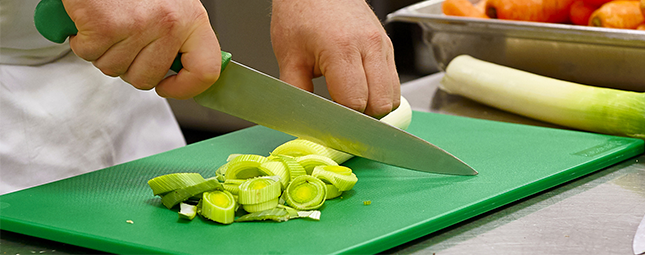The cost of doing nothing about food waste is higher than you think

The easiest way to understand one part of the cost of doing nothing about your food waste problem is to use our Savings Opportunity Calculator. This will tell you, based on the size of your operation, how much you stand to save by preventing food waste with Leanpath. What you stand to save is another way of understanding what it’s costing you to ignore food waste.
But there’s another cost that is less precise but perhaps even more critical: every day you do nothing about food waste, you are sacrificing your competitive advantage.
The Leanpath team just got home from the Horeca Professional Expo in Madrid, the biggest hotel show in Spain, where a new report was released on the digitization of the hotel kitchen.
What is the additional cost of doing nothing about food waste? The report makes the point for us:
“Technology will not serve us the tables, but it will help us be … more competitive. And that leads us to invest that extra that our competition doesn’t invest.”
The longer a foodservice operation waits to prevent food waste, the larger the competitive gap grows against operations who are already incorporating food waste prevention into their kitchen culture. That competitive gap can translate to direct competition on, for instance, menu pricing.
At Novotel Brisbane, a 296-room hotel in Australia, and a Leanpath client, Executive Chef Sean Collins took the savings realized from food waste prevention and reinvested them in the kitchen, leading to better product and steady menu pricing.
“The whole exercise has bolstered our competitive edge,” he says. “Not having to increase our prices to compensate for cost of goods: that’s given us a head start above our competitors.”
Since operations implementing food waste prevention strategies experience a triple bottom line return (profit, people, planet) the competitive edge also includes labor savings and corporate social responsibility. Collins, like other operators preventing food waste, is also finding he’s able to use labor more efficiently, because staff are no longer prepping meals that simply get thrown out. Less food going in the bin also leads to savings on hauling fees.
There’s also the environmental impact of food waste prevention: for every pound of food waste prevented, about a pound of CO2 emissions are kept out of the atmosphere. The brand halo this kind of sustainability initiative provides is valuable, especially with increasing pressure from consumers to follow sustainable standards in foodservice.
Leanpath works with thousands of kitchens around the world. Kitchens that are realizing financial savings as well as a greater competitive edge in an industry where margins are desperately thin. And their competitive edge is only growing.
Find out how much you could save with a Leanpath food waste prevention solution in your kitchen.
Answer a few quick questions and we will email you your savings opportunity calculation.

